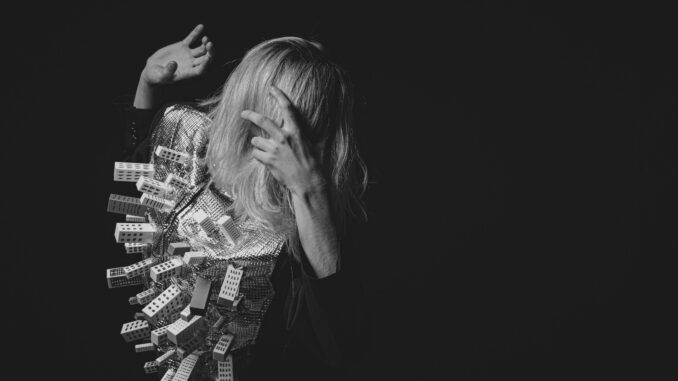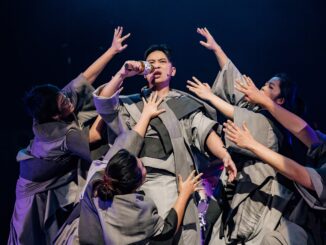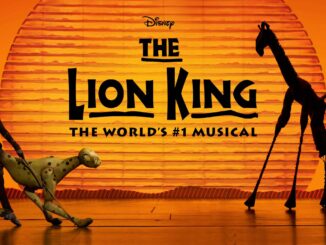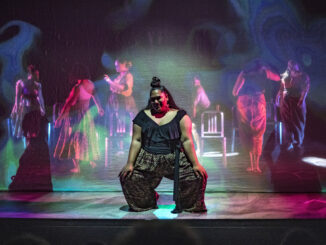
In this guest post, multidisciplinary artist Amber Liberté responds to statements from Creative New Zealand and argues independent artists are being left out of the Delta support offered to Aotearoa’s arts sector.
On 11th October I had an op-ed piece published on Stuff about the lack of support from Creative New Zealand to the arts sector – with a specific focus on independent artists impacted by Covid-19. With CNZ putting their extra $5m in Government funding towards existing programs, I asked, “but what about the independent artists? They are the most vulnerable, the most severely impacted and the most commonly overlooked in policy, funding support networks, and future planning – especially live performers.” The responses to the article were astounding – many friends, colleagues and people I don’t even know messaged to say thanks for voicing what they all felt but had been too worried to say.
Artists have always had a complex relationship with Creative New Zealand as far back as I know. The further we get into devastating socio-economics in Aotearoa, the more heated conversations are becoming. Artists have a lot of feedback but, from what I’ve learned, feel they are not heard or are too scared to bite the hand that feeds them. To be the main funder of artists in Aotearoa is a huge responsibility and takes rigour, empathy, and continual adaptation to the needs of the sector and people it is trying to back.
Unfortunately the Delta response from CNZ has been pretty dire – their reasoning being that the emergency reserves have run out. My article went into CNZ’s unfair distribution of finances (CE salary vs median income of artists), and criticised the structure around their application system among other things. I also suggested, in relation to the impact of Covid-19, CNZ have not given artists the safety net independent artists need right now.
Stuff has a policy of altering things if there is a complaint and predictably the piece caused a reaction. CNZ wanted to correct the point I made about the Delta Relief Package they’d received from the Ministry of Arts, Culture & Heritage. The package referred to in the article was intended to mean the $5 million cash injection given to CNZ from MCH. Given the context of the article, it seemed kind of obvious, but to clarify:
“CNZ’s recent $5 million cash injection from MCH’s Delta relief package has been used to go to existing CNZ funding rounds & programmes – but what about the independent artists?“
CNZ also critiqued my use of the word “support” saying that points in my article were “incorrect and misleading.” The article header changed from CNZ Is Not Supporting Independent Artists During Covid-19 to What about the Independent Artists? and a footnote was added to suggest CNZ”s “funding mechanisms, including distributing the $5m Delta relief fund, do reach independent artists.” Specifically, they are meaning the applications that are open to independent artists and/or the support they are offering to the at-risk organisations they fund… which engage independent artists.
I want to offer my rebuttal to this, which wasn’t published as a postscript. The word “supporting” was used in the title as a call-out and a call-to-action. It seemed contextually obvious what was meant. In regards to the change of title for the article, I maintain that CNZ are not supporting independent artists during Covid – directly. Many contractors & freelancers in the arts sector are jobless, with no safety net – some have been out of “reliable” work for 18 months. Prior to Covid-19, finding work was already a struggle. Freelancers are the people who are needing urgent financial support. While CNZ’s funding application process has always had the possibility of offering financial support for independent artists, it is not specific to, nor a direct support to independent artists. Now each round of Arts Grants closes off at 225 applications. Round 3 of The Arts Grants was meant to close on the 29th October, but the places were already filled by the 19th October.
I’m unsure about this new model. Firstly because the cut-off date doesn’t really mean anything anymore, which leads to my second point: those who have more time and facilities are better equipped to get their application in on time – be that ten or three days before the actual cut off date. If you’re an independent artist, you probably can’t pay a producer or funding person to write for you because chances are you’re working 3 jobs to make ends meet and are too time poor to make a rigorous application yourself. Thirdly, the application system tends to favour more academic-type writing. If you’re a dancer or visual artist, though a video may be a part of your application, it seems more weight is placed on the ability to write about the work instead of showing your process or aesthetic, and you must also prove the work is economically viable. In this model too, if you’re lucky and manage to get an application in on time it’s then a question of what percentage of the applications get funded. In CNZ’s Arts Grant 2021/2022 round 1 results, 31.21% of eligible applications were awarded. Only 3.2% of the 31.21% of the projects funded were for Dance or Customary Māori Arts projects – that is 2 each. This kind of system grossly perpetuates the competitive nature of arts in Aotearoa, fractures all sorts of relationships, identities and senses of belonging and seems completely unsustainable – let alone being a means of support for independent artists.
So the suggestion that CNZ is including/covering independent artists because the artists are able to apply for money under the CNZ application model is not the same as CNZ having the artists’ backs (by reassessing how they use their funds at this time, or advocating for artists at a higher level). In relation to Covid, perhaps the relief fund from MCH could have been used as a safety net for the most vulnerable? As the main arts funder in Aotearoa, the need to intervene in this crisis and offer those in need should be a key concern and something that changes almost immediately.
To their next point, CNZ suggested that funding “at-risk organisations” would benefit independent artists. I agree… Somewhat. Funding “at-risk organisations” is good in that some of those organisations do contract independent artists, but indys don’t always work directly with or for organisations – and especially not reliably. Either because they’re between jobs, there’s no employee/employer protection in the arts sector (Often with 0-hour contracts or a stint of work with nothing guaranteed after that), or they don’t get to work with those organisations at all. Concerningly, a lack of Covid-19 protection clauses in contracts has meant cancellations or indefinite postponements with no financial payout in many cases. Many independent artists already paid for shows/tours/workshops/rehearsals to go ahead and are unable to get any of their losses back (unless they can afford insurance and their policy covers this… I highly doubt there are many who can afford that). Let’s also remember that these organisations would not exist without independent artists.
Some organisations have done their best to remunerate artists where they can. Some organisations have not. To assume that simply funding “at-risk organisations” is enough to be looking after independent artists shows an out of touchness with the heart of the arts in Aotearoa. Those around me do not feel supported or safe by the way CNZ has responded to Delta.
Independent artists need urgent support that is accessible and doesn’t require them to jump through hoops to get. MCH tried to offer assistance, but most indys I talked to didn’t have any of the things required to be considered. Ideally, we need some kind of artist’s benefit – something that gets money directly to artists (unlike the Government’s Creative Careers Services) so that it is people-centric instead of business-centric. Ireland is piloting a Basic Income for artists which appears to have potential. What would be even better than an artist benefit would be a movement towards a Universal Basic Income – as well as fairer economic legislation in NZ, and more investment into arts. Powerful organisations have the ability to advocate for that. I do not think artists are against CNZ, but we are frustrated at the way it has been operating – the confusing bureaucracy, the constant “we don’t have enough money” when it is being unfairly distributed, and the resistance to making serious systematic shifts for the better of the artists.
A postscript as to why arts should have more backing: As well as the global pandemic, there is an epidemic of mental illness in the world (from various micro & macro factors). Artists know this, and are probably dualistically suffering from the impacts of mental illness (or aware and/or battling various factors conducive to mental illness – including the economic system), while also forging the way for other humans to help them find a sense of meaning. Humans have always needed art in this way, and as an outlet – look at the history of humankind. Ancestors from thousands of years ago were painting on walls to tell stories, engaging in ritual dance/theatre/music, and questioning the meaning behind things. Artists are the backbones not just of the arts, but of society. We give meaning, allow people to escape, to analyse, to pass on wisdom or knowledge, and – importantly in today’s context – to critique what is not working. To not look after us will be catastrophic.




Leave a Reply